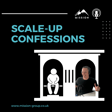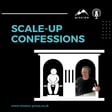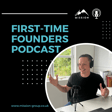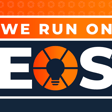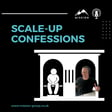
The CFO who became a Visionary Founder
Sylvie Milverton is Co-founder and CEO of Lynx Educate (a learning benefit platform to help companies retain workers by differentiating their benefits offering) and Host of Talent is Everywhere Podcast. Sylvie and her team are backed by leading investors in the EdTech and Future of Work space, including Rethink, Emerge, Southern New Hampshire University and Brighteye Ventures. Her customer list includes well-known logos such as Deliveroo and Lynx Educate has been voted Top 200 European EdTech startups (Holon IQ) and Top 20 EdTech startups globally (ASU GSV).
Before co-founding Lynx Educate, Sylvie spent her career in various Finance seats, growing and operating international education companies in Latin America and Europe. So, in this episode of the First-time Founders Podcast, we discuss how and why she stepped out of being an employee finance executive and into being a ‘visionary’ founder leader - and what she’s learned through her unusual entrepreneurial journey.
Interested viewers can reach Sylvie via https://www.linkedin.com/in/sylviemilverton/ and Rob (https://www.linkedin.com/in/robertliddiard/) at Rob@mission-group.co.uk (or to book some free time with Rob, visit https://www.eosworldwide.com/rob-liddiard). Alternatively, if you’d prefer Rob to send you a free copy of Traction (the book by Gino Wickman which explains The Entrepreneurial Operating System) just complete the form here: https://www.eosworldwide.com/traction-giveaway?implementer_email=rob.liddiard@eosworldwide.com
